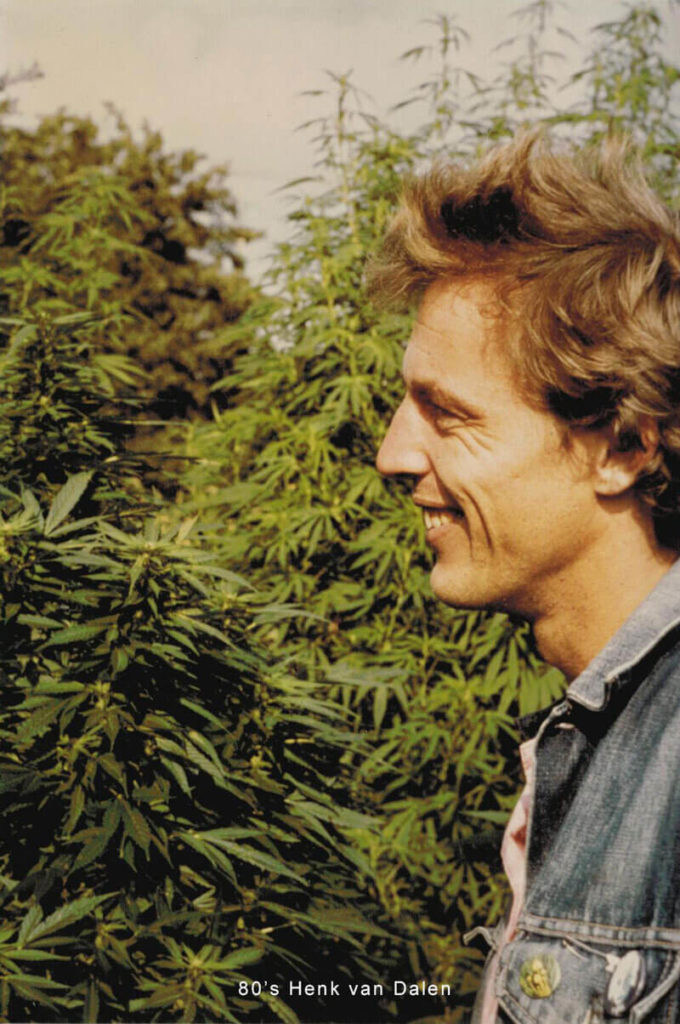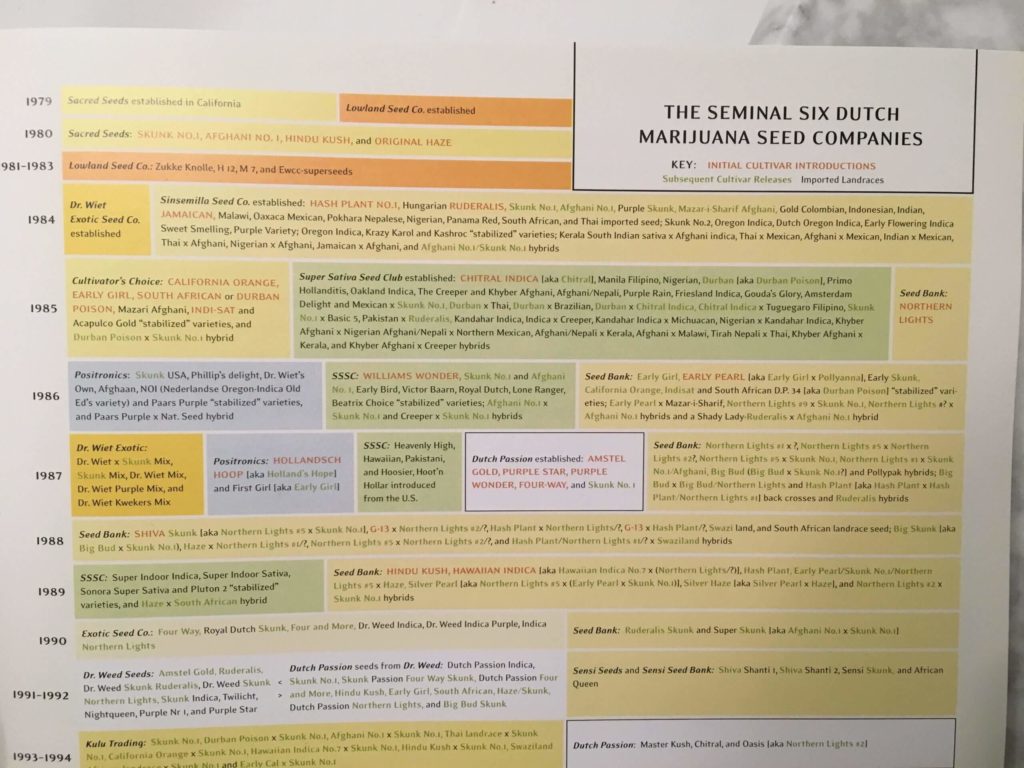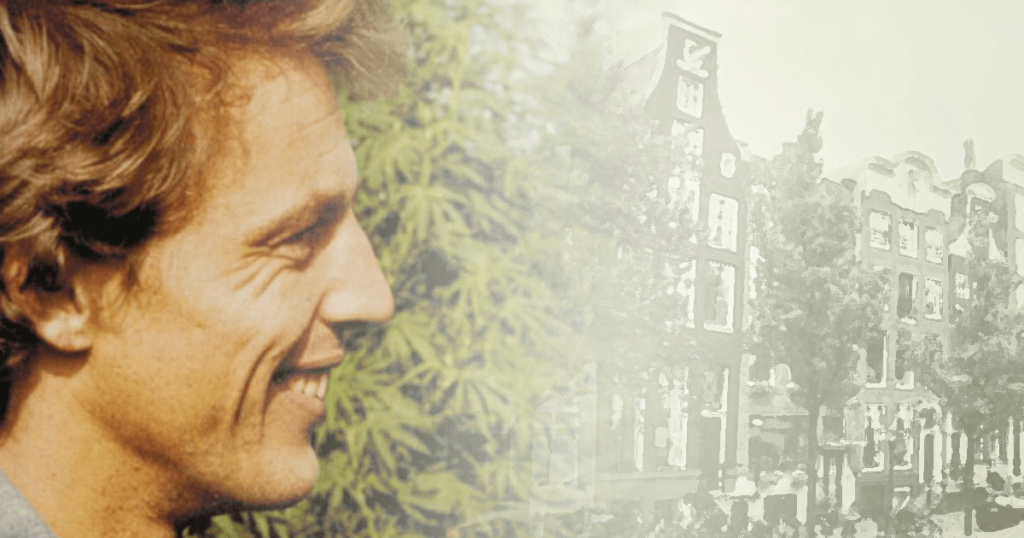Dutch Passion, founded in 1987 by Henk van Dalen, is another in the first wave of Dutch seed companies.
Henk van Dalen, like Ben Dronkers and Wernard Bruining, was an early adopter of the idea of producing domestic homegrown Dutch cannabis. In the 1970s, Henk pursued his interest in cannabis, while at the same time completing his academic studies in the field of Medical Biology at the Free University of Amsterdam.
 By 1987, Henk founded Dutch Passion seed company.
By 1987, Henk founded Dutch Passion seed company.
Initially, Dutch Passion was known for introducing a number of purple varieties like ‘Purple 1’, ‘Purple Wonder’, and ‘Purple Star’. These purple varieties were not particularly potent or flavorful. Their primary attribute was the color and hardiness in outdoor climates at northern latitudes.
Dutch Passion also offered their own versions of the many popular varieties offered by other Dutch seed companies such as ‘Skunk No.1’, ‘Northern Lights’, ‘Haze/Skunk’ and ‘BigBudSkunk’.
A couple of the more well-known Dutch Passion varieties from the early-mid 1990s were the ‘Master Kush’ and the ‘Power Plant’.
Power Plant was a South African hybrid that was known for being a large commercial producer. Power Plant was a variety that was often on the menus of dispensaries in the early days of the California medical scene.
As we discussed last week, DJ Short worked with Dutch Passion for a short time starting around 1997/98. DJ Short provided the initial germplasm to Henk and Dutch Passion but the breeding and seed production was carried out with minimal input from DJ.
The Dutch Passion lines were nevertheless many people’s first introduction to DJ Short’s work. The initial DJ Short varieties like ‘Blueberry’, ‘Blue Moonshine’, ’Blue Heaven’, and ‘Flo’ released by Dutch Passion in the late 1990s have had a significant and lasting impact on the international cannabis scene.
In 2005, Dutch Passion received a clone of the ‘Strawberry Cough’ from Kyle Kushman. Dutch Passion made a subsequent seed release named ‘Strawberry Cough’.
‘Strawberry Cough’ is a clone-only variety popularized and shared by Kushman who originally got the ‘Strawberry Cough’ as a clone in upstate New York. It is a cross between a variety called ‘Strawberry Fields’ x ‘Haze’.
Cuts of the original clone-only Strawberry Cough were spread across the US when Kyle moved out west sharing cuts along the way.
Kyle Kushman and photographer Andre Grossman, one of the great cannabis photographers, have extensively documented the history and travels of Strawberry Cough.
Dutch Passion & ‘Feminized’ Seeds
Dutch Passion was the first seed company to introduce so-called “feminized” seeds to the commercial market in 1998. Feminized seeds are created by reversing the sexual phenotype of a genetically female plant in order to produce viable pollen that can be used to make seeds.
These first feminized seeds were produced using a method called “rodelization”. Henk described this process in the February 2000 issue of Cannabis Culture.
Essentially, rodelization involves stressing plants by taking them far beyond their normal flowering period to induce hermaphroditic inflorescence. This method produced small amounts of seeds and sexually unpredictable offspring.
The presence of male and hermaphrodite plants in these early feminized seeds caused significant consumer backlash and lasting damage to the reputation of feminized seeds.
Dutch Passion continued experimenting and working to improve their methods of producing feminized seeds eventually settling upon the standard industry practice of using Sodium Thiosulfate (STS).
Dutch Passion was certainly not the first to experiment with the sexual reversal of male and female cannabis. Nor were they the first to create feminized seeds.
Robert Clarke wrote about the topic in Marijuana Botany, saying, “The proper pistillate hermaphrodite pollen-parent is one which has grown as a pure pistillate plant and at the end of the season, or under artificial environmental stress, begins to develop a very few staminate flowers.
If pollen from these few staminate flowers forming on a pistillate plant is applied to a pure pistillate seed parent, the resulting F1 generation should be almost all pistillate with only a few pistillate hermaphrodites.
This will also be the case if the selected pistillate hermaphrodite pollen source is selfed and bears its own seeds. Remember that a selfed hermaphrodite gives rise to more hermaphrodites, but a selfed pistillate plant that has given rise to a limited number of staminate flowers in response to environmental stresses should give rise to nearly all pistillate offspring.”
Marijuana Botany was written and published in 1981. This was before Mohan Ram’s groundbreaking discovery and publication of the 1982 paper, Induction of Fertile Male Flowers in Genetically Female Cannabis Sativa Plants by Silver Nitrate and Silver Thiosulphate Anionic Complex.
By 1983, Robert Clarke and David Watson had read the work of Mohan Ram.
According to David Watson, “…we were the first to use STS, we used it shortly after reading about it in Ram’s paper, I and Rob Clarke read Ram’s paper in 1983 and made and used it a few years later. We were the first to use S1-S4 selfed individuals for breeding single Cannabinoid varieties, to commercialize STS seed and breeding production, but not to sell all female seeds.”
Nevil also conducted his own experiments with phenotypic sex reversal in male and female plants using exogenous hormones.
Ever since the introduction of feminized seeds by Dutch Passion the subject has sparked intense debate among cannabis growers and breeders. Over the years better understanding of the science, as well as improved procedures and methods for producing feminized seeds, have significantly improved the results.
As we will see in future installments, the debates that arose in the wake of the introduction of feminized seeds, helped to shape breeding discourse and methods for years to come.
Dutch Passion continues to operate to this day. Their seed catalog these days reflects international market trends, primarily offering feminized and autoflower versions of popular varieties for the international seed market.
Dutch Passion is a first-wave Dutch seed company. Henk van Dalen has guided the company for over three decades navigating Holland’s unique and evolving legal system. Dutch Passion will always be remembered for introducing feminized seeds to the commercial market forever changing the international seed trade.


















